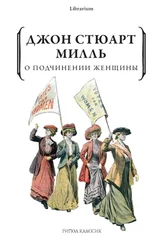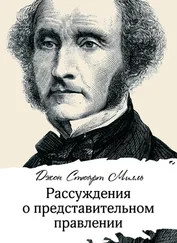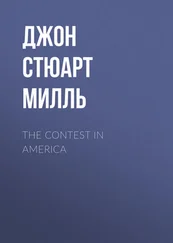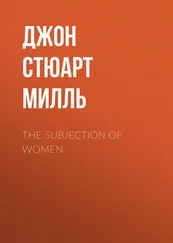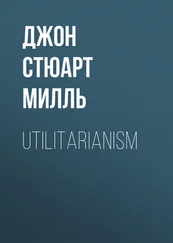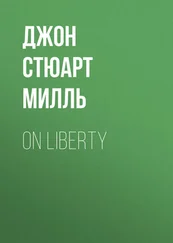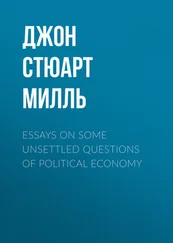Джон Милль - Autobiography
Здесь есть возможность читать онлайн «Джон Милль - Autobiography» — ознакомительный отрывок электронной книги совершенно бесплатно, а после прочтения отрывка купить полную версию. В некоторых случаях можно слушать аудио, скачать через торрент в формате fb2 и присутствует краткое содержание. Жанр: Философия, literature_19, foreign_antique, foreign_prose, на английском языке. Описание произведения, (предисловие) а так же отзывы посетителей доступны на портале библиотеки ЛибКат.
- Название:Autobiography
- Автор:
- Жанр:
- Год:неизвестен
- ISBN:нет данных
- Рейтинг книги:4 / 5. Голосов: 1
-
Избранное:Добавить в избранное
- Отзывы:
-
Ваша оценка:
- 80
- 1
- 2
- 3
- 4
- 5
Autobiography: краткое содержание, описание и аннотация
Предлагаем к чтению аннотацию, описание, краткое содержание или предисловие (зависит от того, что написал сам автор книги «Autobiography»). Если вы не нашли необходимую информацию о книге — напишите в комментариях, мы постараемся отыскать её.
Autobiography — читать онлайн ознакомительный отрывок
Ниже представлен текст книги, разбитый по страницам. Система сохранения места последней прочитанной страницы, позволяет с удобством читать онлайн бесплатно книгу «Autobiography», без необходимости каждый раз заново искать на чём Вы остановились. Поставьте закладку, и сможете в любой момент перейти на страницу, на которой закончили чтение.
Интервал:
Закладка:
One of the evils most liable to attend on any sort of early proficiency, and which often fatally blights its promise, my father most anxiously guarded against. This was self-conceit. He kept me, with extreme vigilance, out of the way of hearing myself praised, or of being led to make self-flattering comparisons between myself and others. From his own intercourse with me I could derive none but a very humble opinion of myself; and the standard of comparison he always held up to me, was not what other people did, but what a man could and ought to do. He completely succeeded in preserving me from the sort of influences he so much dreaded. I was not at all aware that my attainments were anything unusual at my age. If I accidentally had my attention drawn to the fact that some other boy knew less than myself – which happened less often than might be imagined – I concluded, not that I knew much, but that he, for some reason or other, knew little, or that his knowledge was of a different kind from mine. My state of mind was not humility, but neither was it arrogance. I never thought of saying to myself, I am, or I can do, so and so. I neither estimated myself highly nor lowly: I did not estimate myself at all. If I thought anything about myself, it was that I was rather backward in my studies, since I always found myself so, in comparison with what my father expected from me. I assert this with confidence, though it was not the impression of various persons who saw me in my childhood. They, as I have since found, thought me greatly and disagreeably self-conceited; probably because I was disputatious, and did not scruple to give direct contradictions to things which I heard said. I suppose I acquired this bad habit from having been encouraged in an unusual degree to talk on matters beyond my age, and with grown persons, while I never had inculcated on me the usual respect for them. My father did not correct this ill-breeding and impertinence, probably from not being aware of it, for I was always too much in awe of him to be otherwise than extremely subdued and quiet in his presence. Yet with all this I had no notion of any superiority in myself; and well was it for me that I had not. I remember the very place in Hyde Park where, in my fourteenth year, on the eve of leaving my father's house for a long absence, he told me that I should find, as I got acquainted with new people, that I had been taught many things which youths of my age did not commonly know; and that many persons would be disposed to talk to me of this, and to compliment me upon it. What other things he said on this topic I remember very imperfectly; but he wound up by saying, that whatever I knew more than others, could not be ascribed to any merit in me, but to the very unusual advantage which had fallen to my lot, of having a father who was able to teach me, and willing to give the necessary trouble and time; that it was no matter of praise to me, if I knew more than those who had not had a similar advantage, but the deepest disgrace to me if I did not. I have a distinct remembrance, that the suggestion thus for the first time made to me, that I knew more than other youths who were considered well educated, was to me a piece of information, to which, as to all other things which my father told me, I gave implicit credence, but which did not at all impress me as a personal matter. I felt no disposition to glorify myself upon the circumstance that there were other persons who did not know what I knew; nor had I ever flattered myself that my acquirements, whatever they might be, were any merit of mine: but, now when my attention was called to the subject, I felt that what my father had said respecting my peculiar advantages was exactly the truth and common sense of the matter, and it fixed my opinion and feeling from that time forward.
CHAPTER II
MORAL INFLUENCES IN EARLY YOUTH. MY FATHER'S CHARACTER AND OPINIONS
In my education, as in that of everyone, the moral influences, which are so much more important than all others, are also the most complicated, and the most difficult to specify with any approach to completeness. Without attempting the hopeless task of detailing the circumstances by which, in this respect, my early character may have been shaped, I shall confine myself to a few leading points, which form an indispensable part of any true account of my education.
I was brought up from the first without any religious belief, in the ordinary acceptation of the term. My father, educated in the creed of Scotch Presbyterianism, had by his own studies and reflections been early led to reject not only the belief in Revelation, but the foundations of what is commonly called Natural Religion. I have heard him say, that the turning point of his mind on the subject was reading Butler's Analogy . That work, of which he always continued to speak with respect, kept him, as he said, for some considerable time, a believer in the divine authority of Christianity; by proving to him that whatever are the difficulties in believing that the Old and New Testaments proceed from, or record the acts of, a perfectly wise and good being, the same and still greater difficulties stand in the way of the belief, that a being of such a character can have been the Maker of the universe. He considered Butler's argument as conclusive against the only opponents for whom it was intended. Those who admit an omnipotent as well as perfectly just and benevolent maker and ruler of such a world as this, can say little against Christianity but what can, with at least equal force, be retorted against themselves. Finding, therefore, no halting place in Deism, he remained in a state of perplexity, until, doubtless after many struggles, he yielded to the conviction, that concerning the origin of things nothing whatever can be known. This is the only correct statement of his opinion; for dogmatic atheism he looked upon as absurd; as most of those, whom the world has considered Atheists, have always done. These particulars are important, because they show that my father's rejection of all that is called religious belief, was not, as many might suppose, primarily a matter of logic and evidence: the grounds of it were moral, still more than intellectual. He found it impossible to believe that a world so full of evil was the work of an Author combining infinite power with perfect goodness and righteousness. His intellect spurned the subtleties by which men attempt to blind themselves to this open contradiction. The Sabaean, or Manichaean theory of a Good and an Evil Principle, struggling against each other for the government of the universe, he would not have equally condemned; and I have heard him express surprise, that no one revived it in our time. He would have regarded it as a mere hypothesis; but he would have ascribed to it no depraving influence. As it was, his aversion to religion, in the sense usually attached to the term, was of the same kind with that of Lucretius: he regarded it with the feelings due not to a mere mental delusion, but to a great moral evil. He looked upon it as the greatest enemy of morality: first, by setting up fictitious excellences – belief in creeds, devotional feelings, and ceremonies, not connected with the good of human-kind – and causing these to be accepted as substitutes for genuine virtues: but above all, by radically vitiating the standard of morals; making it consist in doing the will of a being, on whom it lavishes indeed all the phrases of adulation, but whom in sober truth it depicts as eminently hateful. I have a hundred times heard him say that all ages and nations have represented their gods as wicked, in a constantly increasing progression; that mankind have gone on adding trait after trait till they reached the most perfect conception of wickedness which the human mind can devise, and have called this God, and prostrated themselves before it. This ne plus ultra of wickedness he considered to be embodied in what is commonly presented to mankind as the creed of Christianity. Think (he used to say) of a being who would make a Hell – who would create the human race with the infallible foreknowledge, and therefore with the intention, that the great majority of them were to be consigned to horrible and everlasting torment. The time, I believe, is drawing near when this dreadful conception of an object of worship will be no longer identified with Christianity; and when all persons, with any sense of moral good and evil, will look upon it with the same indignation with which my father regarded it. My father was as well aware as anyone that Christians do not, in general, undergo the demoralizing consequences which seem inherent in such a creed, in the manner or to the extent which might have been expected from it. The same slovenliness of thought, and subjection of the reason to fears, wishes, and affections, which enable them to accept a theory involving a contradiction in terms, prevents them from perceiving the logical consequences of the theory. Such is the facility with which mankind believe at one and the same time things inconsistent with one another, and so few are those who draw from what they receive as truths, any consequences but those recommended to them by their feelings, that multitudes have held the undoubting belief in an Omnipotent Author of Hell, and have nevertheless identified that being with the best conception they were able to form of perfect goodness. Their worship was not paid to the demon which such a being as they imagined would really be, but to their own ideal of excellence. The evil is, that such a belief keeps the ideal wretchedly low; and opposes the most obstinate resistance to all thought which has a tendency to raise it higher. Believers shrink from every train of ideas which would lead the mind to a clear conception and an elevated standard of excellence, because they feel (even when they do not distinctly see) that such a standard would conflict with many of the dispensations of nature, and with much of what they are accustomed to consider as the Christian creed. And thus morality continues a matter of blind tradition, with no consistent principle, nor even any consistent feeling, to guide it.
Читать дальшеИнтервал:
Закладка:
Похожие книги на «Autobiography»
Представляем Вашему вниманию похожие книги на «Autobiography» списком для выбора. Мы отобрали схожую по названию и смыслу литературу в надежде предоставить читателям больше вариантов отыскать новые, интересные, ещё непрочитанные произведения.
Обсуждение, отзывы о книге «Autobiography» и просто собственные мнения читателей. Оставьте ваши комментарии, напишите, что Вы думаете о произведении, его смысле или главных героях. Укажите что конкретно понравилось, а что нет, и почему Вы так считаете.


